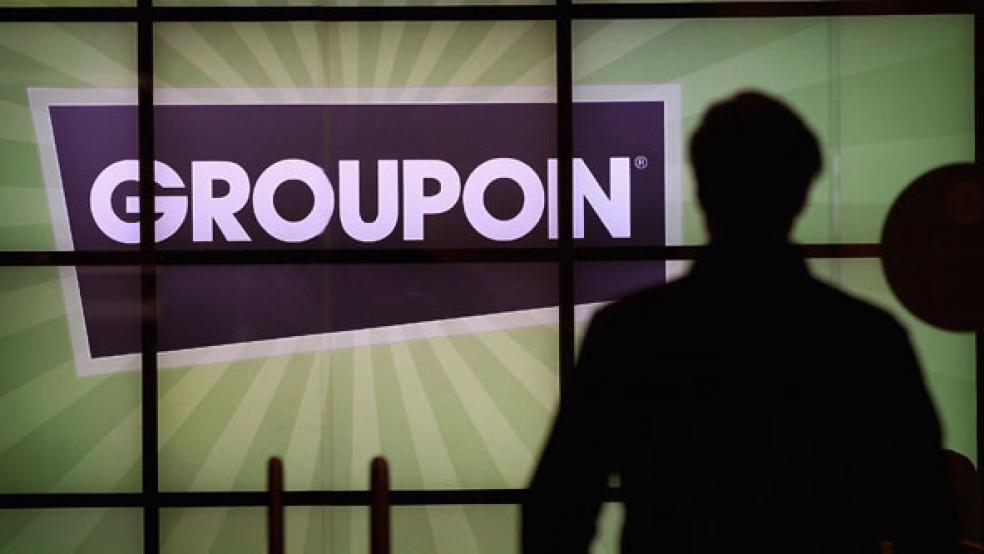On its surface, the Groupon IPO was a resounding success for both the bankers (led by Morgan Stanley) and the company. But despite an impressive first-day 30% pop in the newly public stock, which finished its debut day of trading Friday at $26.11, don’t make the mistake of thinking Groupon shares are like one of its discount deals.
The market’s first-day applause was in large part attributable to clever maneuvering by bankers intent on making a success of a deal they’ve been trying to get done since long before Groupon even filed for the offering in early June. After a torturous route to the market, complete with hiccups and postponements, underwriters had to cut their estimates of the company’s value from $30 billion to the final $17 billion.
True, the deal priced at $20 a share, higher than the $17 or so expected in the days running up to the IPO. But that’s because savvy bankers decided that only 4.7% of Groupon stock would be sold. Friday’s “pop” was simply some investors opting to take a quick profit on what remains a speculative stock, while others tried to jump on board in hopes of more big short-term gains to come.
In fact, for all the periodic angst about how this or that IPO signals a new bubble in the making, rarely has a deal been quite so reminiscent of the dot.com heyday of 1998 and 1999. There’s the tiny float, which brings back memories of some of the late-stage dot.com deals when companies started to trim the size of their IPOs to the point where a 10% float became routine. And there’s the uncomfortable fact that Groupon is still unprofitable and bases its valuation on what may prove to be an irrationally exuberant view of its market and prospects.
A few technical reasons mean that Groupon’s stock will have some support in the coming weeks and months. First of all, there’s that miniscule float; anyone who wants the stock is going to have to bid for it. Add to that the routine “stabilization” efforts of traders at the major underwriters, all aimed at keeping the stock buoyant in the aftermath of the IPO. But still, there is the ugly reality that this is just the first stage of what will be a much larger sale of stock.
One of the reasons that tiny float is buoying Groupon’s stock price is that many insiders (venture capitalists, angel investors, and executives) opted not to sell their stock into the market as part of the IPO. In six months’ time, however, that big overhang of stock owned by insiders eager to capture whatever gains are left on their low-priced seed capital will be released onto the market. Even if that’s done in an orderly fashion, by then all the IPO hoopla will have faded, meaning it’s going to be hard to sustain current valuation levels.
And six months from now the competitive challenge from rivals ranging from LivingSocial to Amazon will only have intensified (how many daily deal emails did you find in your inbox this morning? I counted no fewer than five, each from a different company). Throw in, scrutiny of Groupon’s growth trajectory and its well-chronicled accounting oddities, and you’ve got a recipe for trouble. This is a stock to trade, not to own – and then only if you’ve been able to find a daily deal on bottles of Pepto-Bismol to help you cope with the stress.





